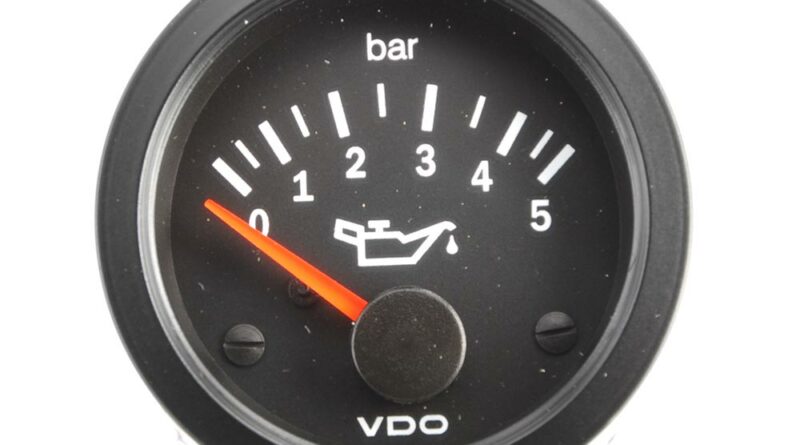Understanding Oil Pressure Why It’s Crucial for Your Engine’s Health
Oil pressure is a vital aspect of your vehicle’s engine health. Maintaining proper oil flow ensures that your engine’s moving parts are well-lubricated, reducing friction, wear, and overheating. In this article, we’ll delve into what oil pressure is, why it’s important, common causes of low oil flow, and how to maintain it. Usual pressure between 1.7bar (25psi) – 4.5bar (65psi) and around 1bar (15psi) at idle.
What is Oil Pressure?
Oil pressure refers to the force exerted by the engine oil as it circulates through the engine. This force is created by the oil pump, which pushes the oil through various channels, ensuring that it reaches all parts of the engine. Proper oil pressure is crucial for the lubrication of engine components, cooling of the engine, and preventing excessive wear.
Why is Oil Pressure Important?
- Lubrication: Sufficient oil flow ensures that all moving parts in the engine are adequately lubricated, reducing friction and wear.
- Cooling: By circulating oil, the pressure helps dissipate heat generated by the engine, preventing overheating.
- Cleaning: Adequate oil flow helps carry away debris and contaminants, keeping the engine clean and functioning efficiently.
- Sealing: Maintaining sufficient oil force helps seal gaps between piston rings and cylinder walls, improving engine efficiency.
Common Causes of Low Pressure
- Low Oil Level: Insufficient oil in the engine is a common cause of reduced oil flow. This can result from leaks, oil consumption, or not topping up the oil.
- Worn Oil Pump: The oil pump is responsible for maintaining pressure. If it wears out or fails, the pressure can drop.
- Clogged Oil Filter: An oil filter that is clogged with debris can restrict oil flow, leading to reduced pressure.
- Engine Wear: Over time, engine components can wear out, increasing the gaps through which oil must flow. This can reduce pressure.
- Using the Wrong Oil: Using oil with the incorrect viscosity for your engine can affect pressure.
Signs of Low Pressure
- Warning Light: The most obvious sign of low oil pressure is the oil warning light on your dashboard.
- Engine Noise: Insufficient lubrication can cause increased engine noise, such as ticking or knocking sounds.
- Overheating: Low pressure can lead to poor engine cooling, causing the engine to overheat.
- Poor Performance: Low oil flow can result in decreased engine performance and efficiency.
How to Maintain Proper Pressure
- Regular Oil Changes: Follow your vehicle manufacturer’s recommended oil change intervals to keep your oil clean and effective.
- Check Oil Level: Regularly check your oil level and top up if necessary. Ensure that the oil level is within the recommended range.
- Use the Right Oil: Always use the type and viscosity of oil recommended in your vehicle’s owner manual.
- Replace Oil Filter: Regularly replace the oil filter to ensure proper oil flow and filtration.
- Inspect for Leaks: Periodically check for oil leaks and address them promptly to prevent low oil levels.
What to Do if You Have Low Pressure
- Stop the Vehicle: If the oil warning light comes on, stop your vehicle as soon as it is safe to do so.
- Check Oil Level: After letting the engine cool down, check the oil level using the dipstick. Add oil if it is low.
- Inspect for Leaks: Look under the car for any signs of oil leaks. If you find a leak, have it repaired by a professional.
- Consult a Mechanic: If the oil level is normal and there are no visible leaks, but the warning light remains on, have your vehicle inspected by a mechanic.
Maintaining proper oil flow is essential for your engine’s health and longevity. Regular maintenance, such as oil changes and using the correct oil, can help ensure that your pressure remains at optimal levels. By understanding the importance of fluid pressure and knowing how to respond to potential issues, you can keep your engine running smoothly and avoid costly repairs.
Buying a used VW. Buying used vauxhall, BMW, Jaguar, Ford, Volvo, Range rover, Bentley, Aston Martin, Porsche, Ferrari, Lamborghini, Maserati, Hyundai, Tesla, Honda, Pagani

